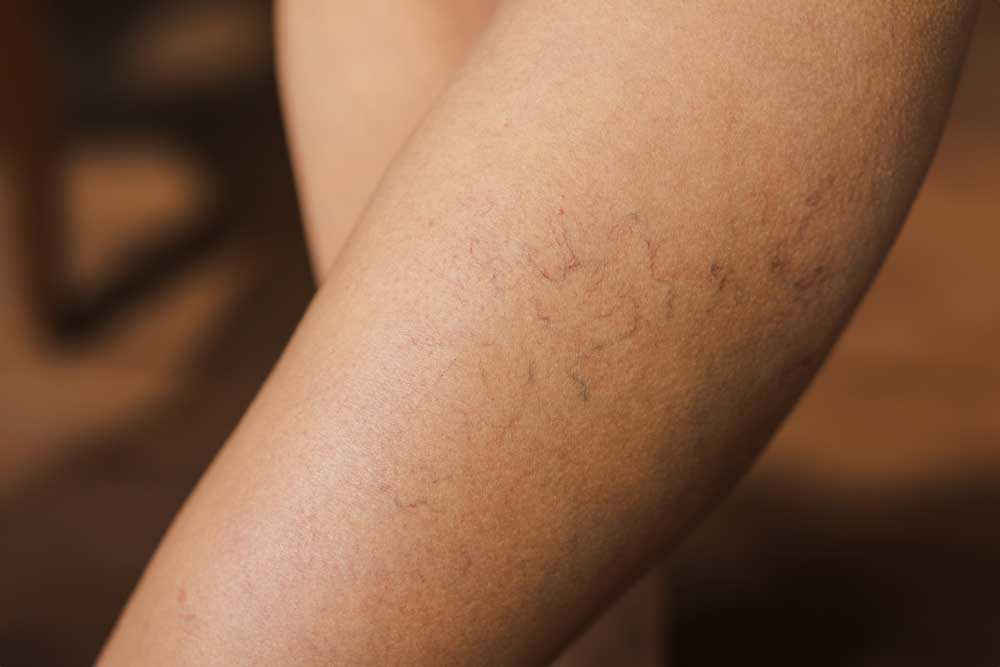Cardiologists, orthopedic surgeons, pulmonologists and many other physician groups know carrying extra weight puts a strain on your heart, muscles, bones and lungs. It also puts you at an increased risk for diabetes, infertility, arthritis and depression.
However, there’s an additional health concern many aren’t aware of when it comes to the carrying extra weight: venous disease. Venous disease causes painful, unsightly spider veins, varicose veins and venous ulcers, in addition to life-threatening blood clots. If you’re overweight or obese and have varicose veins, a family history of varicose veins and or blood clots you’re in a high-risk category. Continue reading to understand the link between varicose veins and obesity, the effects of weight loss and varicose veins, and how to live a healthier life and prevent venous disease.
The Link Between Varicose Veins And Obesity
There are many contributing factors to venous disease and obesity is a major culprit in the development of varicose veins. Extra pounds put pressure on your veins. As time passes, the larger leg veins begins to bulge as the blood pools in the leg veins. This pooling is due to valve insufficiency made worse the extra weight and venous pressure that prevents the blood from flowing upward toward the heart. Instead, the blood remains trapped in the leg veins. The bulging varicose veins are accompanied by heaviness, aching, swelling, pain, and itching. Some patients have leg cramps and restless leg, too. While being significantly overweight is enough to cause varicose veins, there are other contributing factors as well. Pregnancy, genetics, advanced age, a history of blood clots, hormonal medications, and occupations that require prolonged periods of standing or sitting can increase your risk of developing varicose veins.
Effects Of Weight Loss And Varicose Veins : Can Losing Weight Help Varicose Veins?
A connection exists between obesity and varicose veins, but can losing weight help varicose veins? Weight loss can prevent already existing varicose veins from worsening in appearance, but it cannot reverse their presence. In fact, as you lose weight, underlying varicose veins may become more noticeable. There are several excellent varicose vein treatment options that can help, but it’s important to lose weight to get and stay healthy to prevent recurrence of venous disease and other life threatening health problems caused by obesity.
Living Healthier, Preventing Varicose Veins
There are several ways to achieve a healthier life and its positive effects, including our preventive program “Healthy Veins for Life”. A balanced diet and regular exercise are an important component to maintain a healthy weight. Elliptical machines and stationary bikes are great but if you are concerned about joint damage water aerobics may be better.
If your job requires long periods of standing or sitting, wear compression hose to prevent varicose veins, as they promote healthy circulation by applying graduated pressure on the superficial veins. Elevate your legs several times during the day to promote good circulation in the legs and work your calf muscles through stretching daily.
For more health tips and information about varicose vein treatments, such as Venaseal, Varithena and Sclerotherapy, Vein Specialists of the South (VSS) is happy to help. We specialize in conditions caused by venous insufficiency. A Diplomat of the American Board of Venous and Lymphatic Medicine and American Board of Surgery-certified Dr. Kenneth Harper has helped more than 12,000 satisfied patients. Let us help you build a personalized treatment and prevention plan. Contact us for a consultation today.
Our founder, Dr. Kenneth Harper, is board certified by the American Board of Surgery and is recognized as a Diplomat of the American Board of Venous and Lymphatic Medicine, the Medical Association of Georgia, American College of Phlebology, the American Academy of Cosmetic Surgery and others. Contact us today for a consultation or further information about vein problems like spider or varicose veins, vein ulcers, leg swelling and circulatory issues.









